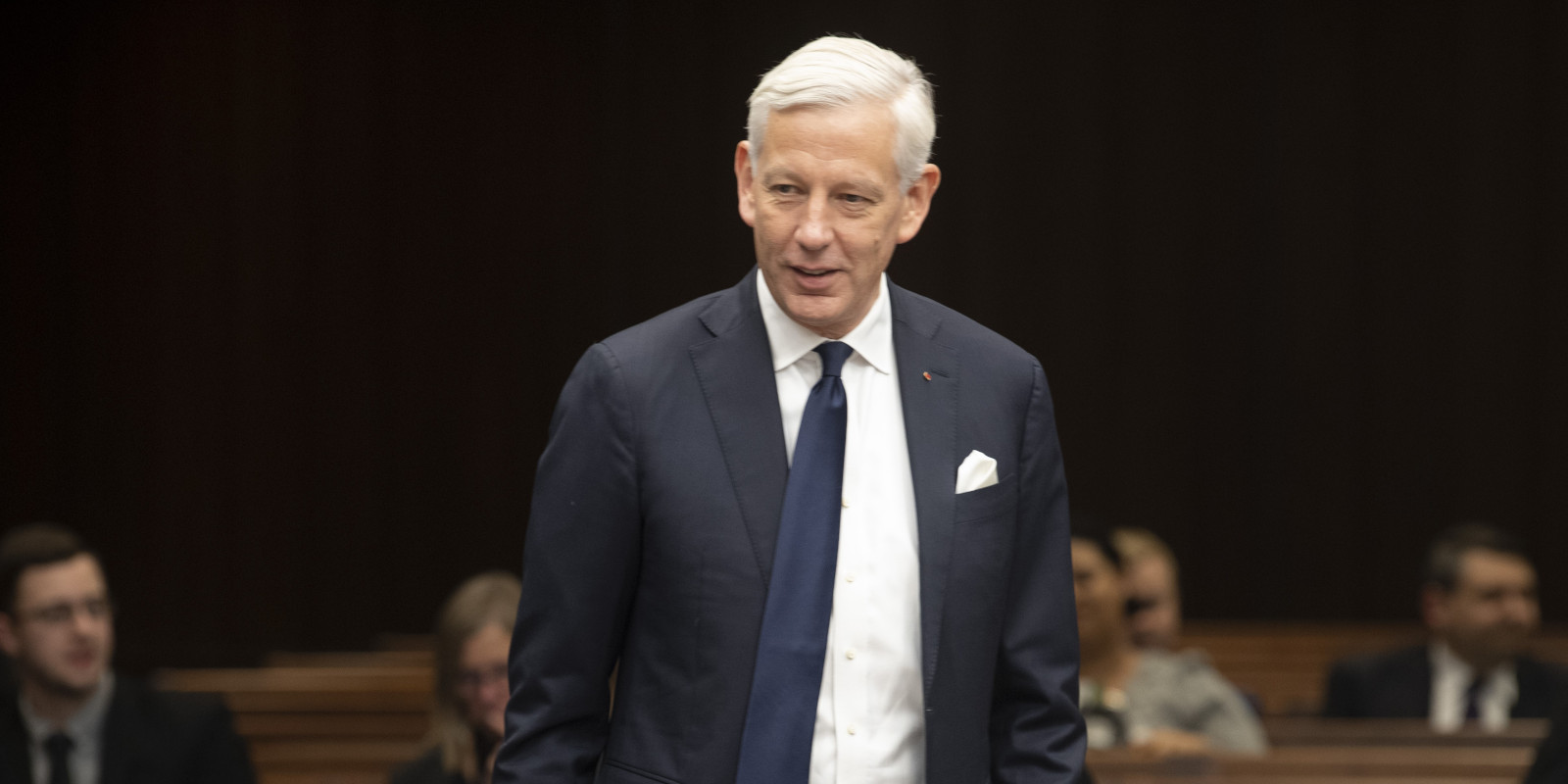The first week back in Ottawa after the holidays for MPs began and ended with non-stop chatter about the consulting firm McKinsey and Company.
Conservative leader Pierre Poilievre kicked off question period on Monday with five straight questions about McKinsey and cronyism and, on Wednesday, the former ambassador to China Dominic Barton appeared at a House of Commons committee to push back on these allegations.
As a former executive at McKinsey, Barton has been the subject of opposition attacks about the eye-popping amount of money the government spent on consulting contracts last year. Here’s five things we learned this week in Ottawa.
1. Barton says Trudeau isn’t one of his 50 closest friends
The most memorable exchange of the week came between Barton and Liberal MP Anthony Housefather when the two tried to pin down the true nature of friendship.
The most frequent line of attack this week from the Conservatives was that the McKinsey contracts represented cronyism, based on Barton’s relationship with Prime Minister Justin Trudeau. Barton said he had no involvement in the McKinsey contracts with the government and denied even being friends with Trudeau.
In an exchange with a Conservative MP, Barton volunteered the information that he didn’t have Trudeau’s phone number and that he had never been in a room alone with him.
Later, Housefather drilled down ever deeper, in the prosecutorial manner of House committees, giving viewers one of the oddest exchanges of the day.
“Would you say he’s one of your five best friends?”
“No.”
“One of your 10 best friends?”
“No.”
“One of your 25 best friends?”
“No.”
“One of your 50 best friends?”
“No.”
Barton also admitted that he had never been to dinner with Trudeau or exercised with him.
2. Barton says he had no involvement in obtaining government contracts
In his opening statement, Barton denied any knowledge of the McKinsey contracts with the government and repeatedly argued that the dollar value of the contract was a drop in the bucket for both the government and McKinsey.
“With all respect, I love Canada, I’m from Canada. Canada does not move the dial,” said Barton.
3. McKinsey is the focus, not other consulting firms
In question period, Poilievre has touted the full, $15 billion value of the government’s business with contractors in 2021-2022 and then pivoted to McKinsey and accusations of cronyism.
The only problem? At most, the McKinsey contracts total about $100 million and are dwarfed by contracts with other consulting firms like Deloitte, PwC, and KPMG.
NDP MP Gord Johns argued that, since some of the contracts go back to the years of the Harper government, the Conservatives are not inclined to study them.
“Why do you think this committee is not looking at all of those companies? Do you actually think they really want to get to the bottom of the outsourcing issue and how to stop it? Because right now we’re seeing millionaires getting richer on contracts off the public tax dollar,” said Johns.

4. Conservatives are not shy about attacking big business
One thing has become clear in the first week of this sitting of the House of Commons: the Conservatives are not afraid to take shots at big business.
Poilievre relentlessly hammered McKinsey during question period, and in a speech addressed directly to Trudeau on Sunday, he tied the consulting firm to the opioid crisis and referred to the companies involved in it as “scumbags.”
“You favoured policies that flooded our streets with heroin and fentanyl and you tied the hands of our police and prevented them from doing anything about it. You failed to hold the scumbag corporations who brought the drugs to our streets accountable. Companies like McKinsey, Mr. Trudeau,” said Poilievre.
In fact, the rhetoric of Poilievre and the Conservative MPs at committee was sometimes indistinguishable from that of the NDP MPs as they took turns blasting consulting firms.
“We know McKinsey’s strengths, that they’re able to swing sole source contracts and get money out of Canadians, that their weaknesses are scandal after scandal. And we know that McKinsey sees any crisis, whether it be the opioid crisis or a pandemic, as an opportunity,” said Johns, the NDP MP.
5. Barton suggested a backchannel to China
In trying to deflect accusations that he was appointed Canada’s ambassador to China because he had a cozy relationship with Trudeau, Barton explained the appointment came out of early discussions about how to free Michael Spavor and Michael Kovrig from detention in China.
Barton said he told Ian Shugart, then the clerk of the Privy Council, that Canada needed to get a dialogue going with China.
“I said, ‘let’s try a back channel group to try and get a communication going.’ And that’s the first time I had an interaction with the prime minister on that, which is, how would we do it? We’d have to set this up at the G20,” said Barton.
At the time, Barton said the situation was so bad that there was no communication with China and the government was casting about for ideas.
“It’s the greatest honour of my life to (have been the ambassador), but I did not volunteer to do it,” said Barton.
Recommended for You

‘A celebration of the spirit of Alberta’: Ryan Hastman on the political, economic, and cultural importance of the Calgary Stampede

‘Can we actually be an independent country?’: Michael Ignatieff on the 60th anniversary of Lament for a Nation

Fred DeLorey: Why the NDP may be in even bigger trouble than we think

Michael Geist: Children accessing porn is a problem, but government-approved age verification technologies are not the answer



